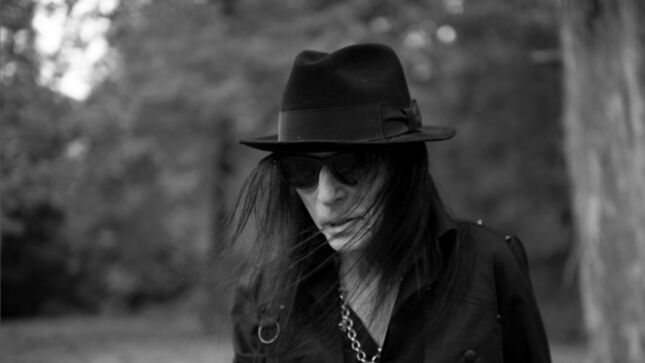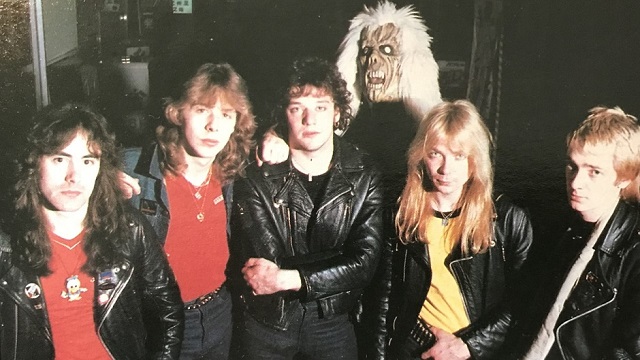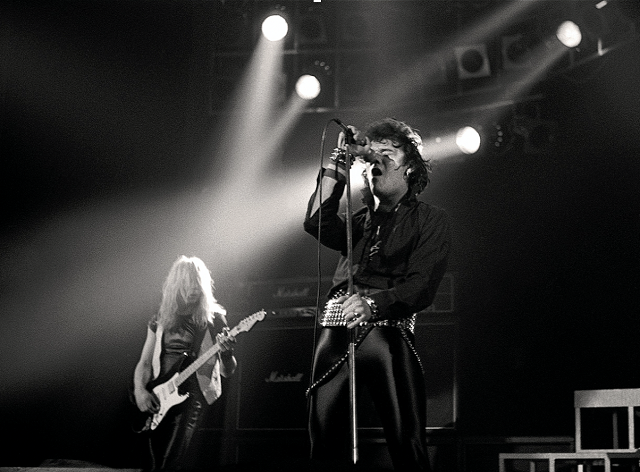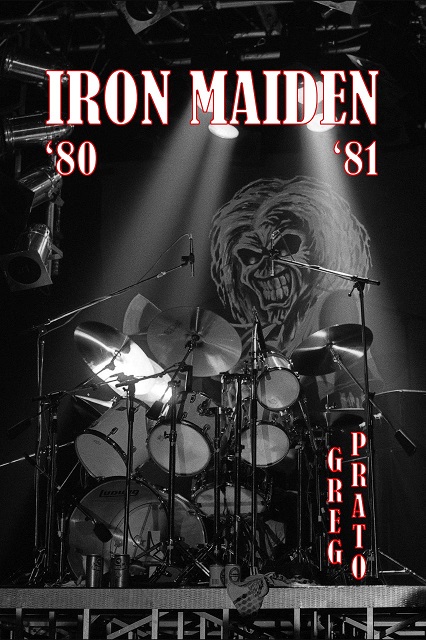
“It was the biggest shame in rock and roll; God knows what we would have done over the next three or four years. We were writing so well.” This was how the late Jon Lord described the end of DEEP PURPLE’s heralded ‘Mk. II’ line up some twenty years after the fact. A combination of internal tensions and exhaustion following the band’s rise to one of hard rock’s most prominent acts had taken its toll in the summer of 1973 – out the door went bassist Roger Glover (whether he chose to leave or was fired at the insistence of guitarist Ritchie Blackmore remains disputed) and, more pertinently, vocalist Ian Gillan following his own, infamous spat with the axeman.
Coming into the band were Glenn Hughes, initially on both bass and vocals, having impressed Lord and drummer Ian Paice whilst playing with Midlands outfit TRAPEZE. A move to take FREE vocalist Paul Rodgers collapsed when the singer decided to concentrate on forming BAD COMPANY, so PURPLE held auditions for a new frontman. An unknown name from the Yorkshire town of Saltburn-by-the-Sea came out on top, primarily because his masculine, blues-tinged voice resonated with Blackmore; thus, David Coverdale completed the ‘Mk. III’ lineup.
Along with Hughes, Coverdale brought elements of funk, soul and blues into the group, along with twin vocal harmonies – their first effort with the group, Burn, was released in February 1974 to great success, reaching #3 and #9 in the UK and US respectively. Coverdale’s individual performance was praised, most notably on the full-throttle title track and the brooding closer Mistreated, a track that would be played by him throughout his career even after he left DEEP PURPLE. The band themselves continued their impressive trajectory, co-headlining the California Jam alongside EMERSON, LAKE & PALMER in front of 250,000 fans on a bill that also included BLACK SABBATH and THE EAGLES.

Now brimming with confidence, Coverdale helped PURPLE fully embrace their funkier side on following record Stormbringer, much to Blackmore’s chagrin; the guitarist, wary of his previous fallout with Gillan, kept relatively tight-lipped, but he couldn’t help but criticise the album in the press, saying he didn’t want to play ‘shoeshine music’, a remark that immediately put him at loggerheads with Hughes due to the incredibly insensitive racial connotations, Hughes being good friends with many black musicians like Luther Vandross and Herbie Hancock. The album performed well commercially, but the die had been cast; in June 1975, Blackmore left to join forces with Ronnie James Dio and form the hugely successful RAINBOW.
Despite considering disbandment, DEEP PURPLE continued and recruited Tommy Bolin for their next album, Come Taste The Band (1975). Coverdale would say he was the one who recruited the guitarist, saying ‘he plugged into four Marshall 100-watt stacks and…the job was his’, although Bolin disputed that soon after. The album received mixed reviews at the time and, retrospectively, Lord would say that ‘the worst thing you can say about it is that, in most people’s opinions, it’s not a DEEP PURPLE album’. In recent years, Bolin’s work and influence has also gained praise; he was encouraged by Coverdale to develop much of the album’s material, and it revitalised the band once again as they continued their funk-meets-hard rock sound.

However, the following five months would prove to be the band’s last for eight years. Bolin’s drug addiction caused him to be openly booed at concerts as he struggled to mimic Blackmore’s solos, while Hughes’ self-confessed cocaine problem hampered the group further. This also included the release of Last Night In Japan (1977), a live taping of a truly awful performance where Bolin could barely play due to an arm injury, forcing Lord to perform most of the guitar lines. The UK leg of the Come Taste The Band tour was the final straw; Bolin was constantly on edge, only needing to hear one shout of Blackmore’s name in the crowd to completely lose focus on stage during his solos and his poor performances were causing tensions. On the last date, at Liverpool’s Empire Theatre on May 15th, 1976, they snapped – a dreadful showing all round, coupled with a crowd baying for Blackmore, proved too much for Coverdale: he left the stage in tears, broke down on Paice and Lord backstage and said, ‘I just can’t take this anymore’.
They agreed, and the band was officially over, the news being made public four months later. It wouldn’t be until 1978 that Coverdale would resurface, again flanked by Lord and, a year later, Paice – initially conceived as a backing band for Coverdale to perform with, the group were soon given a name; it’s another story entirely but, as is well known, WHITESNAKE would go on to dominate rock and metal for much of the 1980’s.
This month, in honour of fifty years since he joined the band, Coverdale has released The Purple Years, a compilation of re-recorded songs by the current WHITESNAKE lineup from his time in DEEP PURPLE. Given the material he had to work with, it’s understandably a mixed bag, but its place in history cannot be understated. In just three short years, David Coverdale had gone from a salesman residing in an English seaside town to one of the most recognisable and celebrated vocalists in heavy music – even if he HADN’T achieved such success after his departure, his place in rock and metal’s tapestry would have been cemented forever more.

The Purple Album: Special Gold Edition is available now via Rhino Records.







 Bruce Dickinson. Créditos: Reprodução/Facebook
Bruce Dickinson. Créditos: Reprodução/Facebook
 Foto de Gus G. via
Foto de Gus G. via